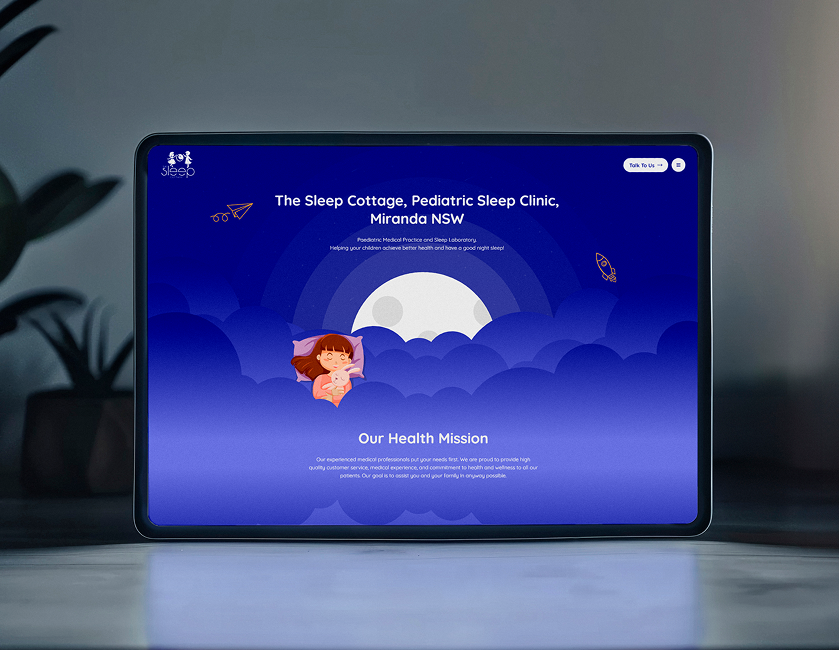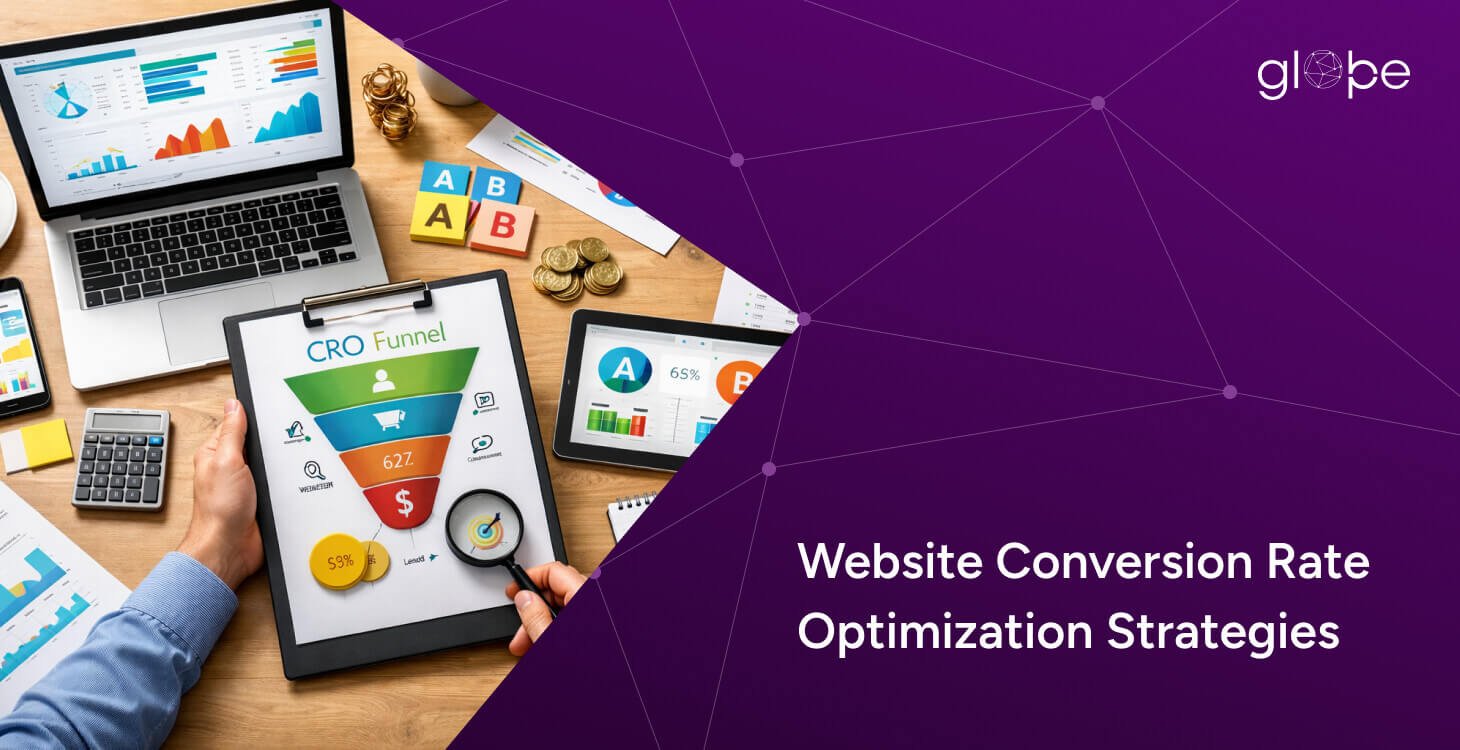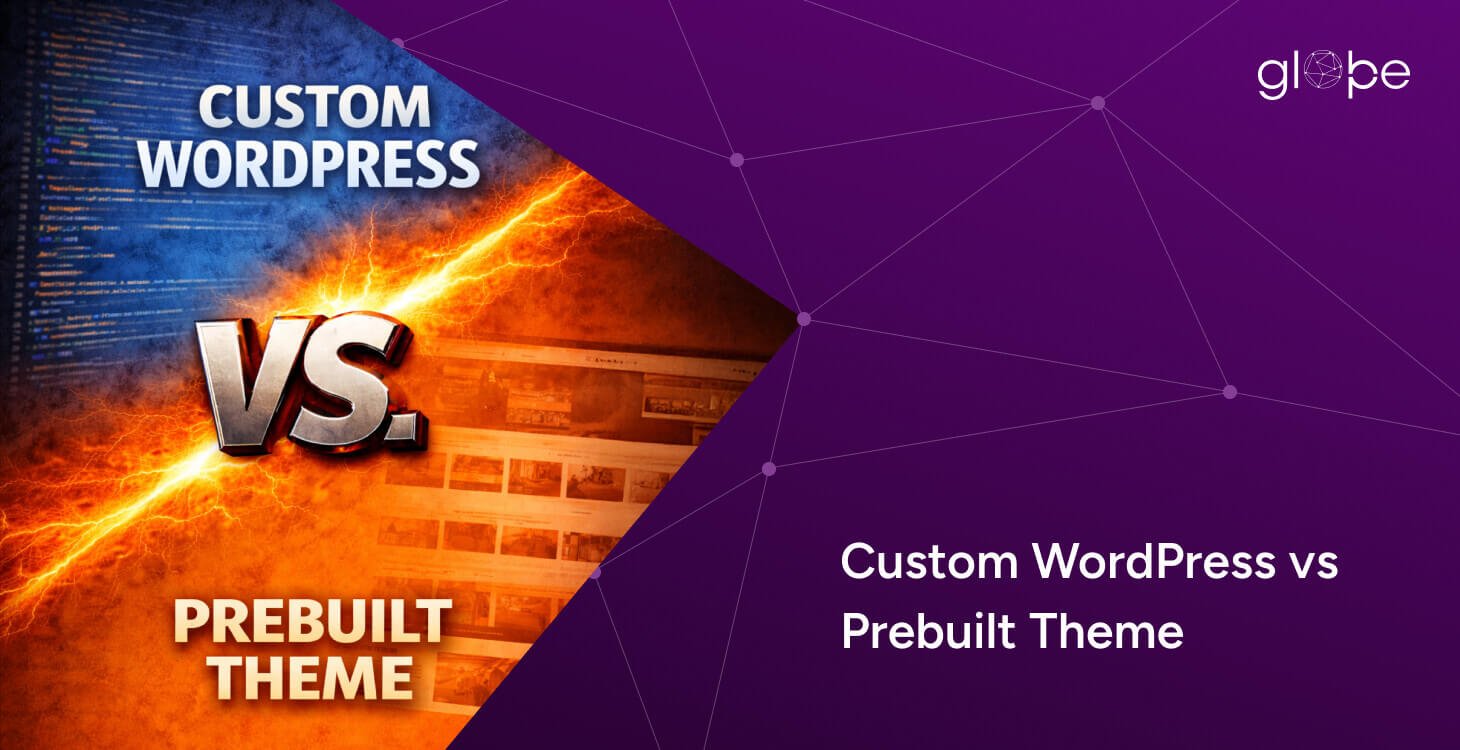
Did you know that over 96% of homebuyers now start their property search online?
From first-time buyers scrolling through mobile listings to investors comparing commercial projects, the real estate journey begins long before an agent gets a call. In this digital-first era, your website isn’t just your business card — it’s your virtual showroom, your lead engine, and often, the reason a client chooses you over a competitor.
A professionally designed real estate website builds trust, showcases listings beautifully, and generates qualified leads 24/7. But here’s the catch not all platforms can handle the speed, SEO, and scalability that today’s real estate businesses demand. The content management system (CMS) you choose directly affects how easily you can manage listings, capture leads, and rank on Google.
That’s where WordPress for real estate websites proves unbeatable. As the world’s most popular CMS, powering more than 43% of all websites, WordPress combines flexibility, performance, and control in one powerful package.
Compared to custom PHP frameworks or closed SaaS platforms, it offers faster deployment, easier management, and endless customization — without breaking your budget.
At Glopbe, we’ve helped real estate agencies, brokers, and developers transform their online presence using WordPress — turning static property pages into high-converting, SEO-driven platforms.
In this blog, you’ll discover why WordPress is the best platform for real estate websites, the features that make it perfect for the property market, and how the right development partner can help you build a site that not only attracts buyers but keeps them coming back.
Why Real Estate Businesses Need a Strong Website in 2026
The real estate landscape in 2026 looks very different from even a few years ago. Nearly 97% of property buyers begin their search online, comparing listings, exploring neighborhoods, and shortlisting agents before ever scheduling a visit. Your website is no longer just a digital brochure — it’s your primary sales engine and the first impression of your brand.
A strong website allows you to showcase your listings with confidence — complete with high-quality images, virtual property tours, interactive maps, and advanced filters that help users find exactly what they’re looking for. Whether you’re targeting first-time homebuyers, commercial investors, or luxury property seekers, your website must deliver a seamless experience across all devices.
But in a fast-moving market, success also depends on how easily you can update your listings, add new agents or offices, and capture leads directly through inquiry forms or CRM integrations. That’s where many platforms fall short — they’re either too restrictive, too technical, or too expensive to scale.
An underpowered website can cost you more than just time. Slow page speed, poor mobile optimization, or limited customization can directly impact your search rankings, user engagement, and lead conversions. In an industry driven by trust and visual appeal, a lagging site means missed opportunities.
That’s why forward-thinking real estate businesses are turning to WordPress for real estate websites — a platform that offers flexibility, performance, and full control without the technical overhead.
Why WordPress Is the Right CMS for Real Estate Websites
When it comes to building a powerful digital presence, WordPress is the best platform for real estate websites—and for good reason. It combines the simplicity real estate professionals need with the advanced functionality developers love, all while keeping ownership and scalability in your hands.
Unlike proprietary or closed systems, WordPress gives you complete ownership of your website and data. You’re not locked into a costly subscription or tied to a single vendor. This open-source freedom means you can customize everything from listing layouts to lead capture forms based on how your business evolves.
WordPress also offers a massive ecosystem of plugins and themes designed specifically for real estate. You can integrate IDX or MLS feeds, create custom property search filters, and add interactive maps with just a few clicks. Whether you’re managing a small local agency or a nationwide property network, the platform adapts effortlessly to your needs.
From an SEO perspective, WordPress is a dream for marketers. Its clean code structure, fast load times, and built-in optimization tools help your listings rank higher on Google, attracting organic traffic from high-intent buyers and sellers. And because it’s fully responsive and mobile-optimized, your site will look and perform beautifully on every device.
Perhaps the biggest advantage is ease of use. With WordPress, agents and property managers can update listings, upload photos, and edit pages without touching a line of code. You can focus on closing deals—not on waiting for technical support to make simple changes.
Affordable, flexible, and built to grow with your business—WordPress for real estate websites offers the perfect balance of control, customization, and cost-efficiency that today’s real estate professionals demand.
Key WordPress Features & Extensions for Real Estate Websites
One of the main reasons WordPress for real estate websites continues to lead the market is its flexibility. With thousands of themes and plugins built specifically for the property industry, WordPress allows you to create a full-featured, professional real estate platform—without starting from scratch.
Here are the key features and extensions that make WordPress the perfect choice for your real estate business:
Dynamic Property Listings
WordPress supports custom post types, allowing you to categorize listings by type—residential, commercial, rental, or luxury—and display them with unique layouts. You can easily include property descriptions, amenities, price ranges, and high-quality visuals, ensuring your listings stand out.
Advanced Search & Filters
With plugins like Estatik, Realtyna WPL, or WP Property, you can add advanced search and filtering options by location, price, property type, or square footage. Map integrations (Google Maps or OpenStreetMap) help users visually explore listings by geography, improving usability and engagement.
IDX/MLS Integration
For agents in the U.S. and other regions with centralized property databases, IDX or MLS feed integration is essential. WordPress plugins such as IDX Broker or IMPress Listings automatically sync listings from multiple sources, saving time and ensuring accuracy.
Immersive Media Experience
Visual storytelling sells properties. WordPress enables you to add high-resolution image galleries, video walkthroughs, and 360° virtual tours seamlessly. This not only enhances user experience but also increases time-on-page and conversion rates.
Agent & Team Profiles
Create dedicated pages for agents or offices, complete with bios, contact details, and assigned listings. You can even enable front-end submission portals, allowing agents to upload new properties directly from their dashboards—no developer required.
Lead Capture & CRM Integration
Convert visitors into clients with custom lead forms, chatbots, or booking widgets integrated into your listings. WordPress connects easily with CRMs like HubSpot, Zoho, or Salesforce, streamlining how you track and nurture leads.
Multilingual & Multi-Site Capabilities
If you manage multiple locations or target international buyers, plugins like WPML or Polylang allow you to translate content and manage multi-site networks effortlessly—keeping your brand consistent across regions.
Performance & Security Optimization
Real estate websites often handle heavy media files. WordPress performance plugins like WP Rocket, Smush, and LiteSpeed Cache ensure fast loading, while firewall and malware scanners (Wordfence, Sucuri) protect your data and client information.
With these powerful tools, WordPress transforms from a simple CMS into a complete real estate platform capable of managing listings, generating leads, and scaling with your business growth.
WordPress vs Other Real Estate Platforms (Custom PHP, SaaS, and Website Builders)
When choosing a platform for your real estate website, it’s easy to get overwhelmed by the options — from custom-built frameworks to SaaS solutions and drag-and-drop website builders. However, each comes with its own limitations. Here’s how WordPress for real estate websites compares with the alternatives:
Custom PHP Frameworks
Building a site from scratch using a custom PHP framework like Laravel or CodeIgniter offers full control, but at a steep price. Development timelines are long, and every feature — from property listings to admin panels — must be coded manually.
Maintenance costs also add up quickly, as even small updates or integrations require developer intervention. For many real estate agencies, this approach is too technical and resource-intensive to be practical.
In contrast, WordPress is the best platform for real estate websites because it provides similar flexibility with far lower development time and costthanks to its vast plugin ecosystem and ready-to-use themes.
SaaS Real Estate Platforms
SaaS-based tools like Placester or Propertybase offer convenience but limit your control. You pay monthly subscription fees, often with restricted customization, limited SEO capabilities, and no true ownership of your website data.
If you ever want to migrate or scale, you’re locked into their ecosystem — which can be a major obstacle for growing agencies.
WordPress, on the other hand, gives you complete ownership of your website, content, and listings. You can migrate, redesign, or expand anytime without losing functionality or data — a huge advantage for long-term business growth.
Website Builders (Wix, Squarespace, etc.)
Website builders are popular among small businesses because they’re simple to use. However, when it comes to real estate functionality — like IDX integration, dynamic search filters, or CRM connections — they fall short.
Their limited SEO optimization and closed plugin ecosystems make it difficult to scale beyond a basic online brochure.
WordPress bridges that gap perfectly — it’s just as user-friendly but infinitely more powerful. You can start small and scale into a fully featured property platform without rebuilding from scratch.
In short, WordPress strikes the ideal balance between flexibility, scalability, and cost-effectiveness. It empowers real estate agencies to build high-performing, lead-generating websites that they truly own — without compromising on performance, design, or long-term growth.
How to Build a Real Estate Website on WordPress
Building a successful real estate website isn’t just about design — it’s about creating a high-performing digital experience that attracts leads, builds trust, and drives conversions. Here’s a high-level roadmap to help you plan and launch your real estate website on WordPress the right way:
Plan Your Goals and User Journey
Start by defining your website’s purpose. Are you targeting buyers, renters, or investors?
Map the user journey from discovering listings to submitting an inquiry — and plan your page structure accordingly. Include core pages like Home, About, Listings, Agents, Testimonials, and Contact.
A well-structured content strategy ensures visitors can find what they need in just a few clicks.
Choose Reliable Hosting and Domain
Your hosting provider directly impacts site speed, uptime, and security — all crucial for real estate websites that rely on high-resolution images and dynamic listings.
Choose a WordPress-optimized host such as SiteGround, WP Engine, or Bluehost, and secure a domain name that aligns with your agency’s brand.
Pick a Real Estate WordPress Theme and Plugins
Select a professional, real estate-focused theme that supports custom listings, IDX/MLS integration, and mobile responsiveness.
Popular options include WP Residence, RealHomes, and Houzez each offering pre-built layouts and powerful customization options.
Then, install essential plugins for SEO (Yoast SEO or Rank Math), caching (WP Rocket), lead capture (Contact Form 7, Gravity Forms), and security (Wordfence).
Set Up Property Listings and Search Filters
Create your property listing system using custom post types or plugins like Estatik or Real Estate Manager.
Include advanced search filters (location, price, property type, status) and interactive maps to help visitors easily browse listings.
You can also enable agent profiles and lead capture forms directly on each listing page.
Customize Design and Branding
Your website should reflect your agency’s identity — from colors and typography to layout and imagery.
Use custom branding to differentiate yourself from competitors and maintain consistency across listings, agent pages, and contact forms.
We focus on creating conversion-driven WordPress designs tailored specifically to real estate businesses.
Optimize for SEO and Performance
Once your site is live, optimize it for visibility and speed:
- Add meta titles and descriptions with targeted keywords (like “WordPress for real estate websites”).
- Implement structured data (RealEstateListing schema) for better SERP visibility.
- Use responsive layouts and compress images for faster load times.
- Test with tools like Google PageSpeed Insights or GTmetrix to fine-tune performance.
Launch, Test, and Maintain
Before going live, test all features — property search, inquiry forms, and mobile responsiveness.
After launch, set up a maintenance schedule: regular backups, plugin updates, and security scans.
Adding new listings, publishing client stories, and updating market insights will keep your site fresh and SEO-friendly.
Common FAQs for Real Estate Agencies Choosing WordPress
Is WordPress good for real estate listings?
Absolutely. WordPress for real estate websites is one of the most versatile and cost-effective ways to manage property listings. You can create custom post types for properties, add filters, and integrate advanced search and map features using plugins like Estatik, Realtyna WPL, or WP Property.
Can I integrate IDX/MLS with WordPress?
Yes. WordPress fully supports IDX and MLS integrations through reliable plugins such as IDX Broker or IMPress Listings. These tools automatically sync listings from your regional database, ensuring your property inventory stays accurate and up to date.
How secure is WordPress for a real estate website?
When properly configured and maintained, WordPress is highly secure. Using trusted hosting, SSL certificates, and security plugins like Wordfence or Sucuri, you can protect your data and prevent unauthorized access. Glopbe also provides ongoing maintenance and security monitoring for real estate clients.
What does a WordPress real estate website cost?
The cost depends on the scope and functionality you need. A simple brochure-style site may start around $1,000–$2,000, while a feature-rich, fully integrated real estate platform with IDX and CRM tools could range between $3,000–$10,000+.
We provide custom WordPress solutions tailored to your business size and goals.
Can multiple agents manage properties easily in WordPress?
Yes. WordPress supports multi-user roles, meaning agents can log in, add, or update their listings directly without affecting other content. Plugins like Frontend Submission Manager make it easy for agencies to manage multiple contributors or branches from a single dashboard.
Why Partnering with Glopbe Makes a Difference
Choosing WordPress is just the first step — the real results come from how it’s designed, developed, and optimized for your audience. That’s where Glopbe stands apart.
We specialize in building WordPress websites for real estate businesses that don’t just look stunning but also generate measurable business outcomes — from higher lead conversions to improved search visibility.
Our approach is strategic and transparent:
Discovery
We begin by understanding your goals — whether it’s showcasing premium listings, increasing inquiries, or strengthening your brand presence online. We analyze your target audience, competitors, and user flow to create a data-driven website strategy.
Design
Our UI/UX experts design a conversion-focused interface that highlights properties beautifully while keeping navigation intuitive. Every pixel is crafted to guide users from browsing to booking seamlessly.
Development
We build your website using clean, optimized WordPress architecture, integrating essential tools like IDX/MLS feeds, CRM connections, and lead-capture systems. Performance and scalability are prioritized from the start.
Our team follows industry-best WordPress practices throughout the build. Explore our WordPress Development Services to see how we deliver high-performance, conversion-ready websites tailored for the real estate industry.
Launch
Before your website goes live, we run SEO audits, mobile responsiveness tests, and security checks to ensure flawless performance. Our team also handles hosting setup and site migration if needed.
Ongoing Support
Your real estate website should evolve with the market. We provide continuous maintenance, updates, and SEO improvements, ensuring your site stays fast, secure, and visible in search results.
With Glopbe, you get more than just a website — you get a long-term partner invested in your digital growth. Our clients consistently see faster lead capture, higher organic rankings, and better engagement metrics after launch.
If you’re ready to elevate your real estate presence online, contact us for a free website audit or consultation. Let’s build a platform that not only showcases your listings but turns visitors into qualified leads.
Conclusion — Build Your Real Estate Website with Confidence
In today’s competitive property market, your website is more than a marketing tool — it’s the foundation of your business growth. And when it comes to choosing the right platform, WordPress is the best platform for real estate websites because it delivers what modern agencies need most: flexibility, control, scalability, and cost-effectiveness.
From dynamic property listings and IDX/MLS integrations to mobile optimization and lead-capture tools, WordPress empowers you to create a website that not only looks professional but also performs flawlessly. Its open-source freedom ensures you’re never locked into rigid systems or recurring costs, while its SEO-friendly structure helps your listings rank higher and reach the right audience.
In short, WordPress gives real estate professionals complete ownership of their digital presence — enabling you to attract leads, convert clients, and grow your business with confidence.
Don’t wait to modernize your property website. The real estate market is moving fast, and so should your digital strategy.




